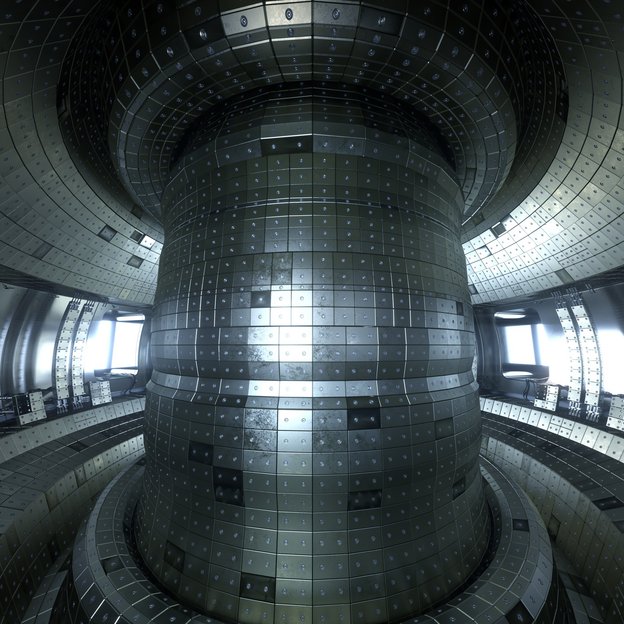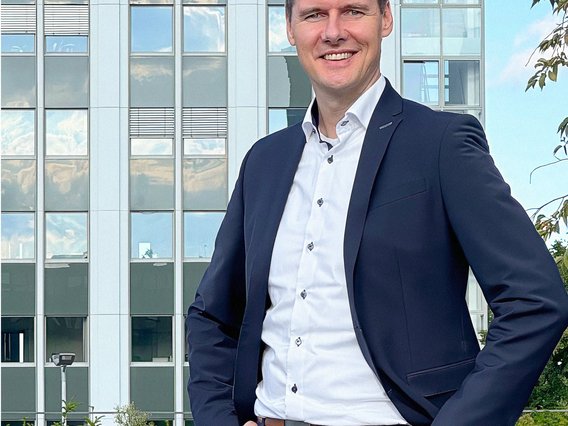Unternehmen
Nuclear fusion: TÜV NORD analyses the technical and economic challenges of this promising technology

Unternehmen

Global demand for electrical energy is rising, particularly due to the widespread use of artificial intelligence. Germany is therefore also focusing on nuclear fusion as a key technology for the future of energy. On 1st October, the German government adopted the action plan ‘Germany on the way to a fusion power plant’. What is nuclear fusion all about? And where are the challenges and opportunities?
Inside the sun, hydrogen atoms fuse to form helium, releasing enormous amounts of energy. The fusion of hydrogen atoms into helium produces fast neutrons. Nuclear fusion reactors are designed to utilise their kinetic energy; at least, that is the idea behind most concepts. This energy is converted into heat and ultimately into electricity. ‘Nuclear fusion promises theoretically unlimited energy with low environmental impact and no long-lived radioactive waste. To date, however, not a single fusion reactor feeds energy into the grid, and there is no plant that generates energy outside of experiments,’ says Hans Koopman, Managing Director of TÜV NORD EnSys.
Several lines of development in research
There are different approaches: magnetic fusion designs such as Tokamak and Stellarator, which control a deuterium-tritium plasma using magnetic fields, and laser-induced fusion reactors, which use small deuterium-tritium pellets as fuel, for example. The underlying nuclear reaction is identical in almost all concepts, but there are differences: for instance, reactors can be operated continuously or only in pulse mode.
Unresolved challenges
From TÜV NORD's point of view, numerous questions remain unanswered and need to be resolved:
· All concepts still need to prove in practice that net energy can be generated and used on a regular basis.
· The fuel cycle, in particular the production of sufficient tritium during operation, remains unresolved.
· Materials research is needed for the highly stressed inner reactor walls.
· The raw material requirements include exotic materials such as enriched lithium-6.
· Plant safety and radiation protection are not yet a focus, although they will be important during operation.
· The approval procedures are still open. If, as envisaged in the action plan, the regulations are enshrined in the Radiation Protection Act rather than the Atomic Energy Act, approval could be significantly easier than for nuclear power plants.
‘Against the backdrop of all these unresolved challenges, the timelines for the development of fusion power plants are very ambitious,’ says Hans Koopman.
From an economic perspective, other factors are also relevant, emphasises Hans Koopman: ‘Scalability, competitive costs and predictable timelines are crucial for commercial energy production. Nuclear fusion must be scaled up to terawatt hours – at acceptable costs for investors and consumers. In addition, the technology must be developed quickly enough to contribute to climate protection alongside other technologies.’
Research benefits other industries
In Germany, there are four start-ups actively seeking to tap fusion as an energy source. Fusion technologies have been researched and developed worldwide for years, with government funding programmes in numerous countries. According to the Fusion Industry Association, over 50 private companies are working on projects. "Many fusion companies benefit from the fact that their systems can be used for other commercial purposes such as plasma etching and X-ray sources. Technologies such as high-temperature superconductors and advanced materials are driving the further development of high-tech products. Innovations in HTS magnets are being used in wind turbines and medical imaging. Advances in supercomputing and AI are also supporting calculations in research," explains TÜV NORD expert Hans Koopman.
The TÜV NORD GROUP has long been active in nuclear technology and is actively involved in nuclear fusion projects such as Wendelstein 7-X, ITER and STEP. ‘Our task is to ensure the safety of new nuclear technologies and to promote the standardisation of fusion power plants,’ says Koopman.

Hans Koopmann
Hans Koopmann, Managing Director of TÜV NORD EnSys. Photo: TÜV NORD
Founded over 150 years ago, we stand for security and trust worldwide. As a knowledge company, we have our sights firmly set on the digital future. Whether engineers, IT security experts or specialists for the mobility of the future: in more than 100 countries, we ensure that our customers become even more successful in the networked world.
